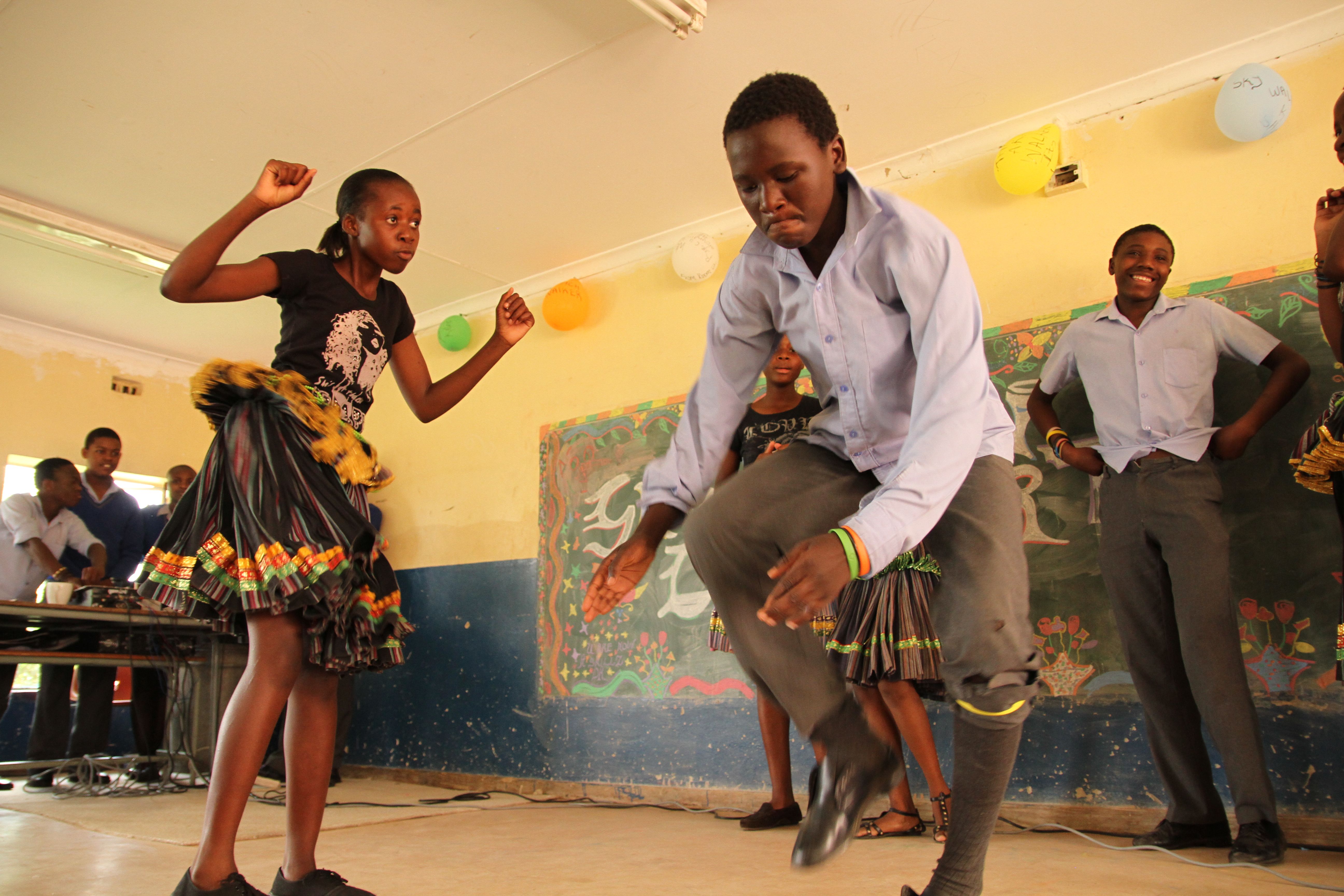Only my second full day in the country and I was just going along for the ride, camera-in-hand, hoping to get some worthwhile footage. I did not know what to expect at the graduation ceremony for the students of Tiyani Primary School in Diepkloof, Soweto. The students had spent the last nine weeks working with the coaches of Grassroot Soccer, a sport-for-development organization that is using the language and power of soccer to lead the fight against HIV/AIDS in Africa.
When the ceremony got under way, the students danced, sang, recited speeches and poems to show their appreciation for the coaches. It was an amazing spectacle and at times I could barely contain my own excitement behind the camera-- my hips and feet moving involuntarily to the rhythm of the music and the students dancing on stage.
One of the coaches, Walker Mosala, a 24-year-old native of Klipspruit, Soweto, approached the stage and the students adapted the "Ole! Ole!" melody that reverberated throughout South Africa's stadiums during this year's World Cup, inserting the name of their coach and teacher.
The coaches are trained in a curriculum that uses soccer analogies to teach the children valuable life skills and HIV/AIDS preventative behaviors. It also creates a dialogue that serves to alleviate some of the stigmas around the disease.
"It's a very big, big, big problem in South Africa right now that we face," said Mosala, who told me he got involved with Grassroot Soccer after the volunteer opportunity was advertised at his local church. "Most of the people in black communities, they don't really think that HIV is real and they don't think that they might get infected."
The program tries to create an atmosphere where kids feel comfortable talking about difficult issues affecting their lives.
"Some of the kids, they sometimes tell us that they didn't eat at home, they didn't have dinner. And, you, as a coach, you just wonder, what do their parents do? Then, they tell you that their parents, they go out drinking...and it's sad to see a young child saying all that stuff and having to deal with all that bad stuff. It's very sad."
The theory of the program is that children learn best from those they respect.
"They taught me that there is a word called 'resilient,' which means using your strength to bounce back from bad situations. When you are resilient, you forget what happened and move on with life," said one ninth-grader who spoke at the graduation ceremony.
The legacy of the 2010 World Cup will be written by the students of Tiyani Primary School and their counterparts all across Soweto. The World Cup has left Africa for now, but its legacy is maintained through these young people, their beautiful voices, and dynamic dance moves as they continue the fight against a terrible disease.
